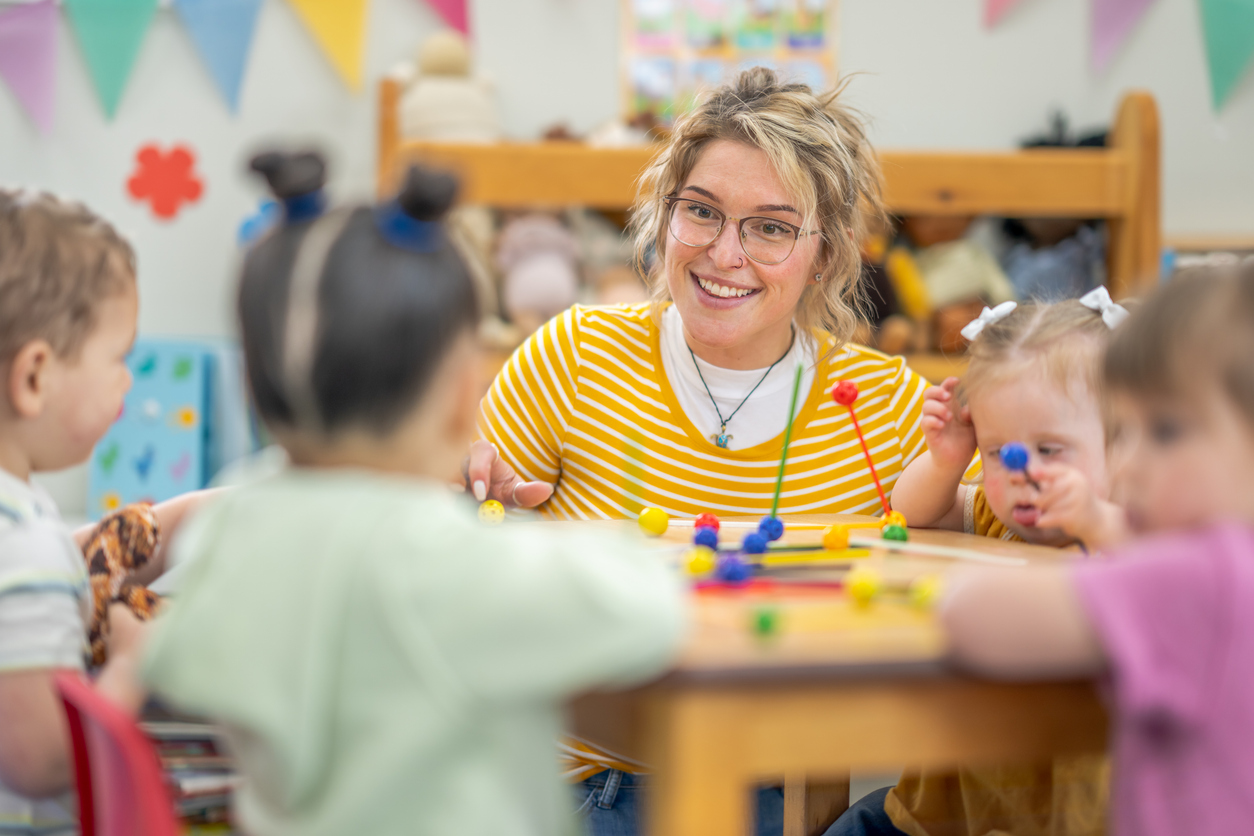What Is Education Psychology?
Written by:
Wilson College
• Jun 11, 2025

About 15% of public school students receive special education services, according to 2022-23 data from the National Center for Education Statistics (NCES). That represents about 7.5 million children, ranging in age from 3 years old to young adulthood. Education psychology can help special education teachers support these learners as they grow academically.
What is education psychology? Education psychology—the study of how people learn–– is vitally important for special education. Applying principles from education psychology can help educators improve student learning, increase retention, and boost motivation. Studying education psychology and earning a special education degree prepare graduates for careers in special education.
Education Psychology Definition
Education psychology is a subfield of psychology that examines the learning process. Educational psychologists research learning processes to understand how individuals retain information.
Major theories in education psychology include the following:
-
Behavioral: This theory posits that learning benefits from particular forms of reinforcement. Teachers can create reward or incentive theories to encourage student learning.
-
Developmental: This theory emphasizes that skill development and learning occur throughout the lifespan. It emphasizes the role that brain development plays in learning, encouraging teachers to design instruction for specific age groups.
-
Cognitive: This theory emphasizes the role of beliefs, emotions, and motivation in learning. Rather than reinforcing behavior, it focuses on developing motivation and problem-solving.
-
Constructivist: This theory asserts that learning doesn’t happen in a vacuum. Constructivists argue that social and cultural context influences how people learn new information.
-
Experiential: This theory draws on the cognitive and constructivist theories to examine how life experiences influence the learning process.
Different theories of education psychology promote different approaches to teaching. As a whole, researching learning methods and processes can help educators develop research-based strategies to improve teaching effectiveness.
How Does Education Psychology Apply to Special Education?
While education psychology examines learning in multiple settings, including schools, workplaces, and social settings, the science of learning is critical in education. Understanding how people absorb and retain new information has enormous implications for educators.
In the field of special education, education psychology can provide valuable insights into learning challenges. As special educators know, learners develop at different paces, requiring individualized instruction based on each student’s unique needs.
For example, psychological research focused on learning can inform how educators teach students with learning challenges, such as dyslexia. Similarly, investigating the learning outcomes with different teaching methods helps educators refine their approaches and better understand the instructional process from a psychological perspective.
Benefits and Examples of Education Psychology in Special Education
Improving student learning represents the greatest benefit of applying education psychology in special education. In diverse child care careers , understanding the learning process helps educators support young learners reach their potential.
Here are some examples of applying education psychology in special education, along with the benefits of these approaches.
Instructional Design
Curriculum development represents a core task for special educators. Education psychology can help educators design instructional materials to reach diverse learners.
For example, project-based learning can be an effective tool to increase retention and develop life skills. Similarly, multisensory learning offers an alternative approach to traditional methods. By integrating senses such as sound and touch, special educators can more effectively engage students with learning disabilities.
Differentiated Instruction
Students come to special education classrooms with diverse needs. They may have speech or language impairments, intellectual disabilities, or developmental delays. Educators must create differentiated lesson plans for each learner. Education psychology offers insights into the teaching approaches that will have the greatest impact on different students.
Learners can’t engage with material if it’s not accessible—and without engagement, learning suffers. Special education teachers customize learning materials to improve accessibility and comprehension. Differentiation can increase engagement by providing various approaches for students.
Educational Technology
Integrating technology into the special education classroom enhances learning. Adaptive technology, such as text-to-speech (TTS) software, allows students with visual impairments to fully engage with written material, for example.
Education psychology also emphasizes the importance of student engagement to learning. Educational technology allows special educators to design interactive lessons that improve learning and retention. For example, educational games can increase motivation.
Student Assessment
Education psychology can inform the assessment process that educators use to measure academic progress. By researching the learning process, educational psychologists have developed evidence-based tools to measure learning.
Collecting data on academics and skill development informs teachers about the effectiveness of their instructional approaches. Special education teachers can use assessments to provide positive reinforcement and develop personalized learning goals. Assessments can also identify areas where learners require additional support.
Earn a Special Education Degree at Wilson College Online
Special education teachers are in high demand across the country. You can prepare for several special education career paths with a Bachelor of Arts (B.A.) in Special Education from Wilson College Online.
The flexible online program incorporates coursework in growth-mindset pedagogies, inclusive classrooms, and educational psychology. You’ll explore learning processes, classroom management techniques, and student motivation. Majors pursuing a special education teaching certification complete student teaching assignments to gain classroom experience. Reach out to Wilson College today to learn more about the special education bachelor’s program.
Recommended Readings
5 Types of Learning Disabilities Teachers Should Know
How to Create an Inclusive Classroom
Sources:
American Psychological Association, Educational Psychology Promotes Teaching and Learning
Council for Exceptional Children, 5 Educational Technology Tools for Future Special Educators
National Center for Education Statistics, Students With Disabilities
Parallel, Special Education Teachers: Roles and Responsibilities
Positive Action, Teaching Strategies for Students With Special Needs


